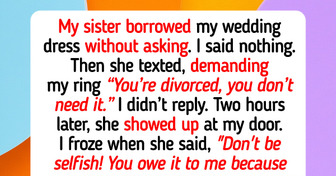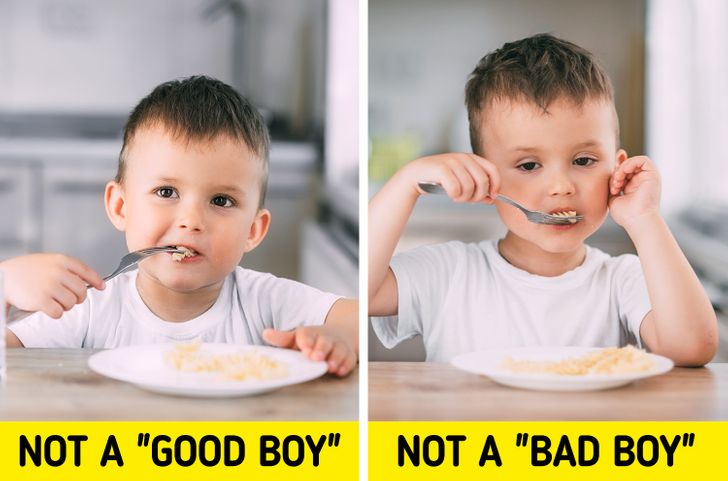the article is really helpful i am a kid and i am force fed by my mom every time i tell her that i am full and can't eat anymore but she won't listen
Why We Don’t Need to Force Our Kids to Clean Their Plates
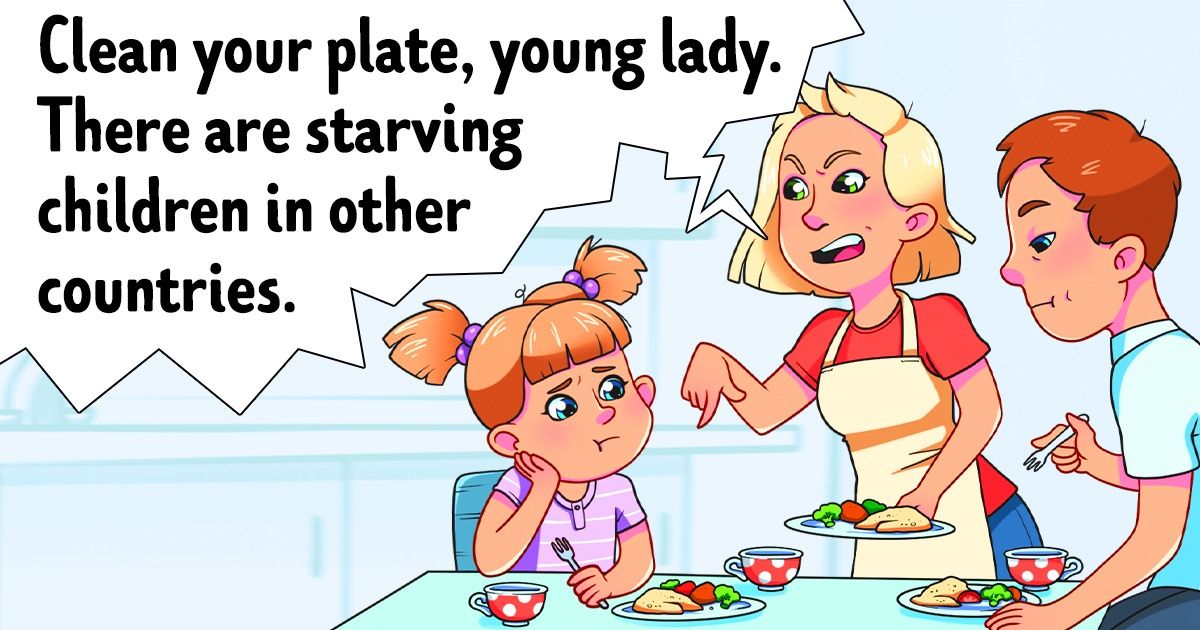
Parents often complain that their children eat like birds, a little bit here and there, but they rarely finish all their food. While families play a major role in kids’ eating behavior, it’s important not to make mistakes that will negatively influence your children. And while every third family pressures their kids to eat, it’s time to ditch the classic notion of “the more the better.”
We at Bright Side felt curious about why experts speak out against forcing our kids to scarf down food.
1. Kids might not get a chance to develop a healthy relationship with food.
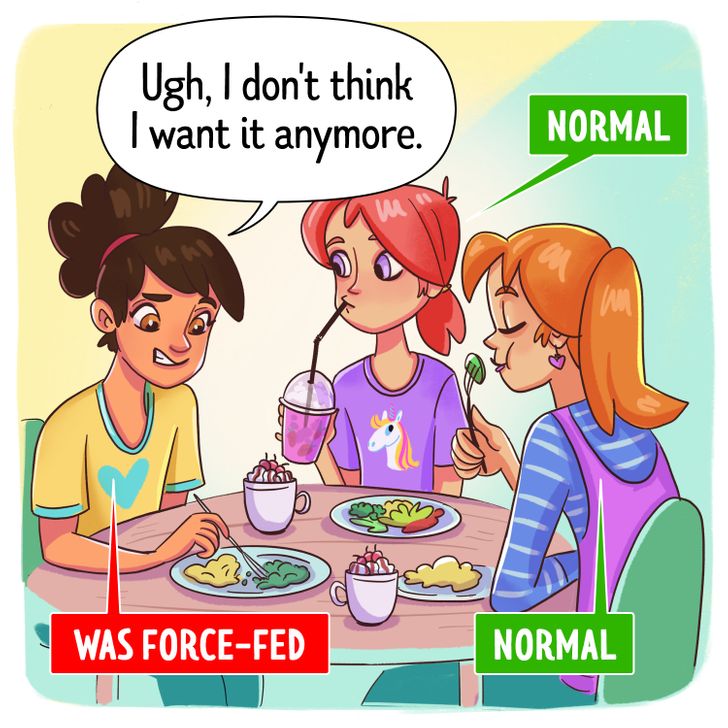
Children need to have a chance to develop intuitive eating and be able to understand when they’re hungry and when they’re full. To promote the development of normal eating behavior, it’s important for them to be able to decide how much they want to eat and to stop eating at the point when their body and mind are fully satisfied.
2. Eating becomes a barometer of success.
Eating is natural, and there’s no need to praise toddlers for eating well. When we do so, inflated praise makes them feel more insecure. Another mistake parents can make is scolding kids when they haven’t cleaned their plates, which is also harmful to their developing eating habits. If you want, you can verbalize your kid’s actions by saying something like, “Oh, I see you haven’t touched your lunch. Is there something wrong?”
3. It takes away the child’s control over their own body.
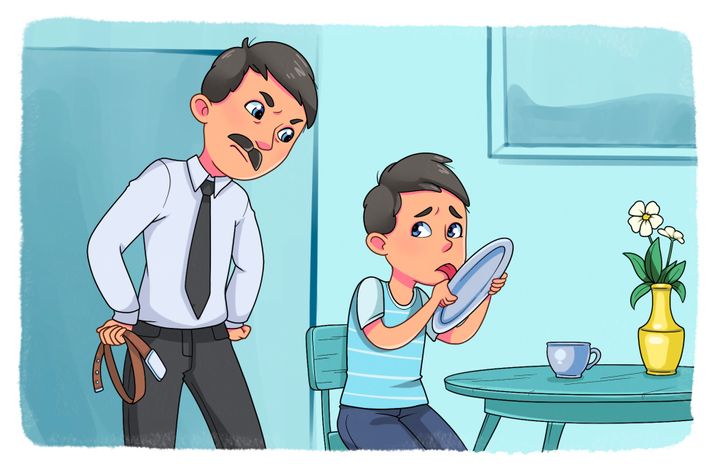
It’s wonderful when kids also have body autonomy, allowing them to govern what happens to their bodies, just like adults do. And while trying to make sure that your little one eats enough, we might start focusing on our authority rather than on promoting healthy food choices. Specialists suggest practicing “autonomy support” by giving children the ability to self-regulate, make choices, and create boundaries during feeding interactions.
4. The connection between the body and the brain might get weaker.
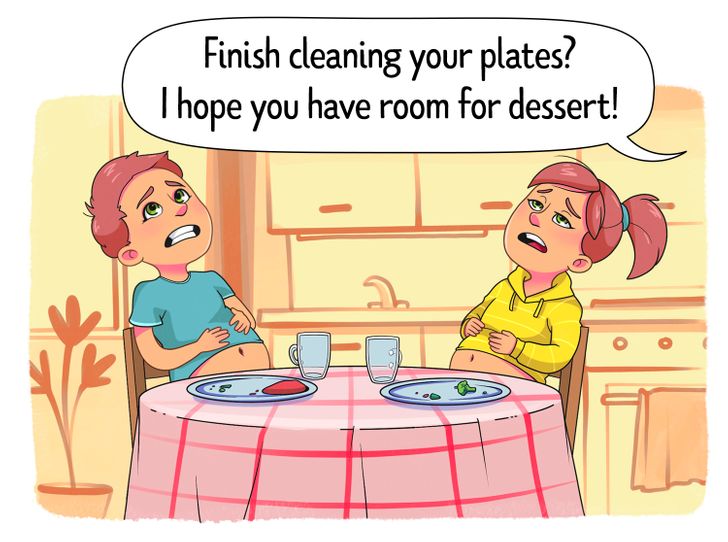
When we’re eating, the brain receives signals from digestive hormones, enhancing the feeling of fullness. And when parents don’t let kids listen to their brain, scientists warn us that this might cause long-term issues. Overeating, and as a result, obesity among kids, is associated with poorer cognitive functioning.
5. It increases the risk of obesity.
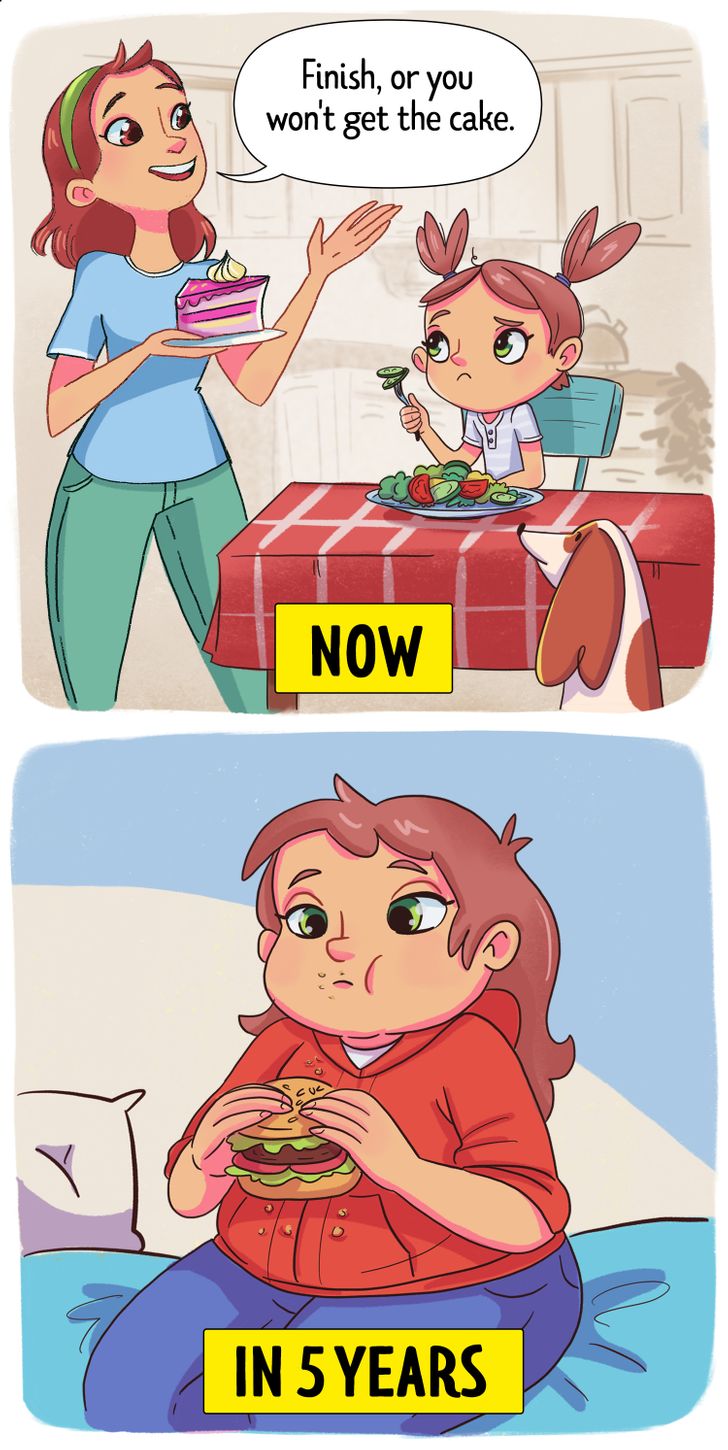
Every fifth kid suffers from obesity and coaxing, emotional blackmailing, or just physically putting food in their mouths mindlessly. Studies showed that giving your children portions that are too large and obliging them to eat more than they desire is a common cause of overeating and becoming overweight.
6. Kids might start to hate healthy food.
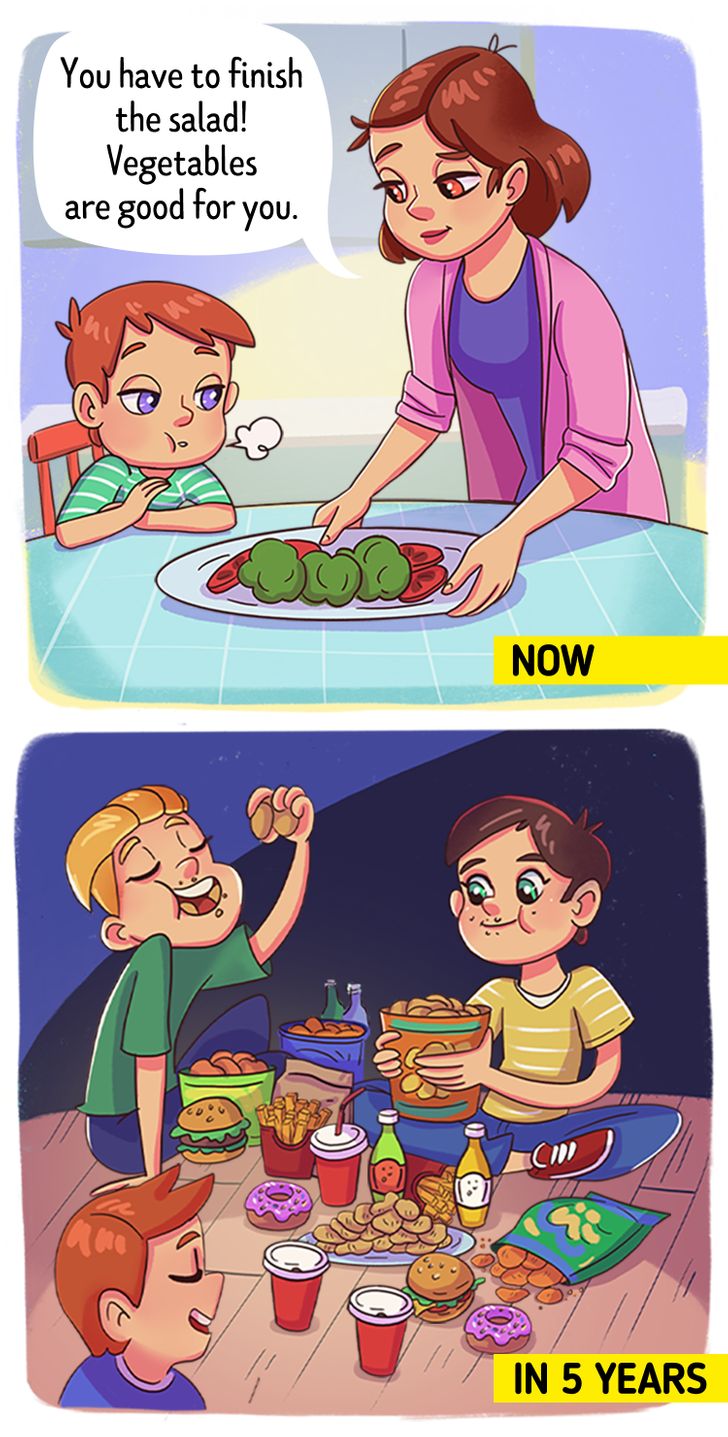
If the experience with food that parents are offering was negative, then there’s a chance that the child will avoid this type of food, becoming a picky eater. Due to the natural fear of unknown food, it’s normal for kids to refuse to eat some products at first, but when refusal to eat is met with pressure to eat, there’s a high chance that association with this product won’t be a positive one, and the kid can develop an aversion toward the healthy foods his parents would offer him.
7. We can let guilt about wasting food go.
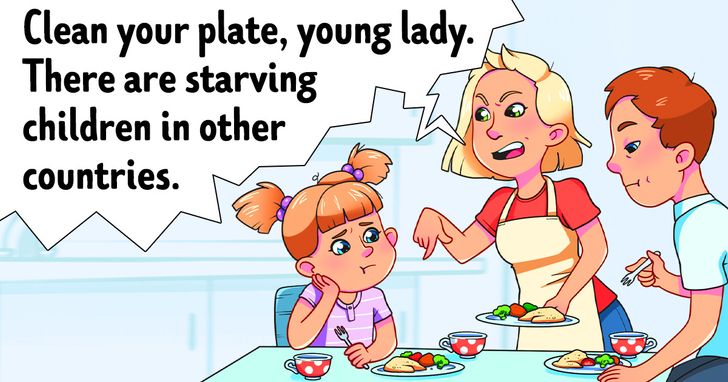
While food waste is a huge problem, it’s an adult’s responsibility to make sure that products don’t end up in the trash. But referring to something as tragic as world hunger won’t lead to a sudden appreciation of the last bite of broccoli, causing nothing but frustration. You can offer your little ones smaller portions, or ask them if they’re even hungry in the first place.
Have you ever felt pressure to finish your food as a child? How do you react when your kids refuse to eat everything?
Comments
Yeah the one thing about obesity was my first concern, how comes parents don't think about this
jsjsjajjaja\
i used to hate it when my parents said "there are starving people in the world"
Related Reads
15 People Who Stay Kind Even When Their World Is Falling Apart
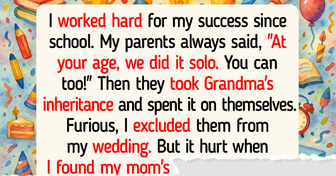
I Refuse to Pay for Everyone Else Just Because I Chose a Vegan Restaurant
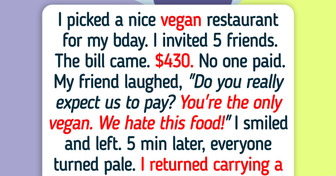
Our “Romantic” Vacation Was Hijacked by My Wife’s Family—And It Forced Us to Reevaluate Our Relationship
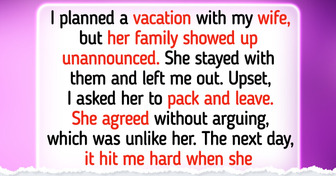
12 Moments That Prove Kindness Is Soft but Completely Unbreakable
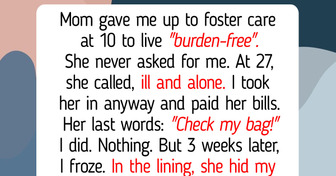
I Refused to Give Up Motherhood to Be My Mom’s Unpaid Caregiver
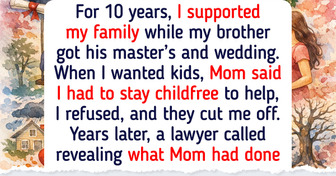
My Manager Tried to Destroy My Career but a Work Argument Showed Them the Truth

My In-Laws Forced Me to Leave My Vacation Early—They Crossed Every Line

11 Stories That Only Worked Because of Kindness

I Refuse to Let My Sister Hijack My Pregnancy Announcement

14 Dates That Started Like Movies but Ended Like Sitcoms
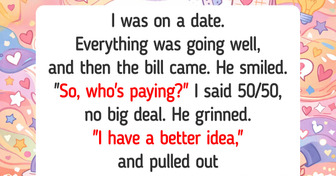
My Parents Told Me I Didn’t Deserve an Inheritance—I Made Them Regret
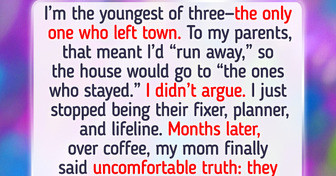
12 Stories That Prove Kindness Is the Strongest Armor
